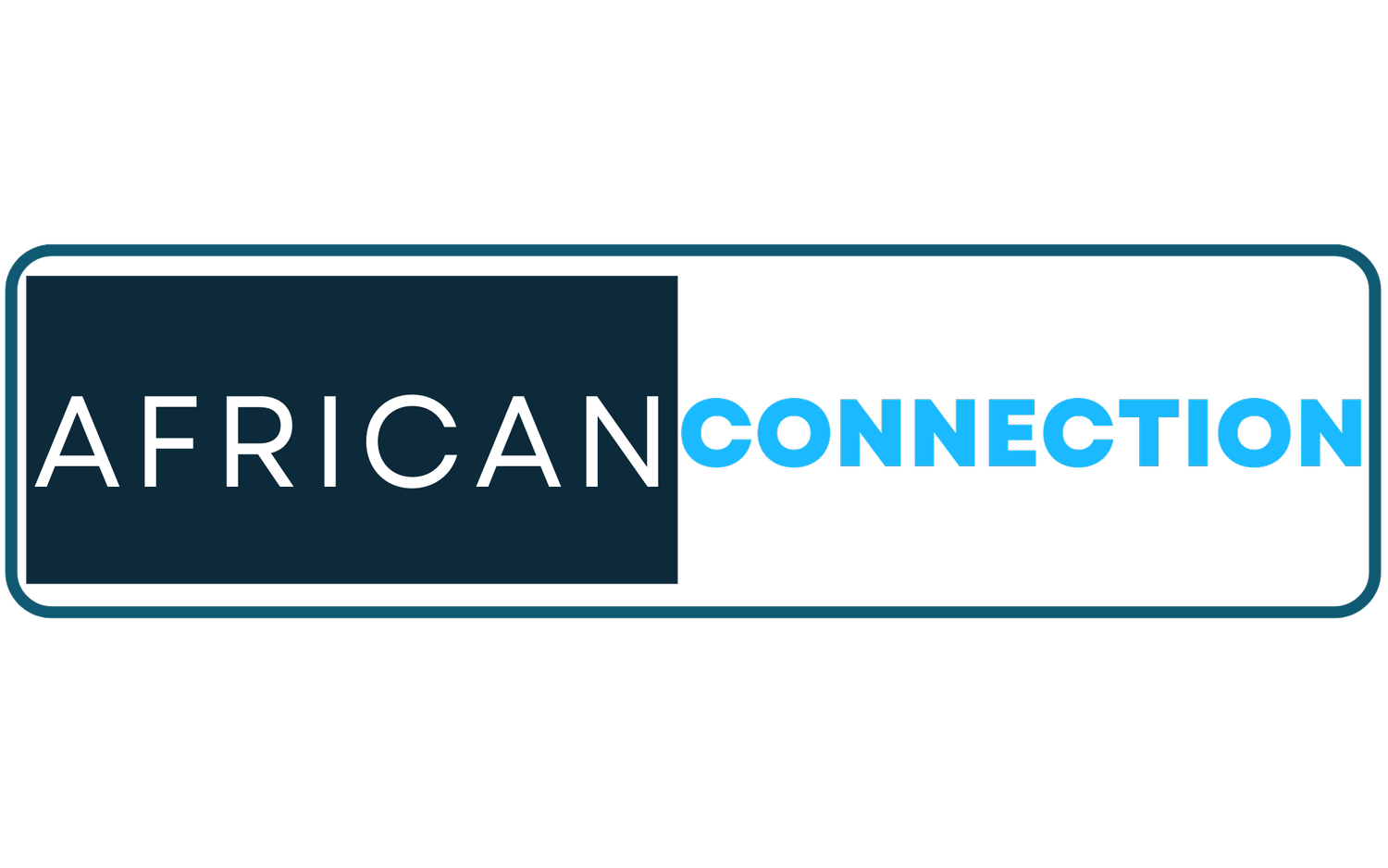Join the movement to empower women and girls!
The African Connection has the mission of eliminating period poverty a reality, and we work with local organizations, governments, and other stakeholders in Namibia to create and implement solutions that provide girls with the necessary sanitary materials. We also work with communities to educate them about the importance of access to these materials and the effects of period poverty. Additionally, we provide resources and support to help girls stay in school and focus on their education and future goals. Finally, we provide access to affordable menstrual health products and services and advocate for better policies surrounding period poverty.
Raising Awareness about Period Poverty
Period poverty is a pressing issue affecting girls and women in Namibia, hindering their education, well-being, and future opportunities. Lack of access to sanitary materials and menstrual health products is a barrier that needs urgent attention and action.
Advocating for Policy Change
We believe that period poverty can be eliminated through collaborative efforts. By working together with the Namibian Ministry of Health and Social Services, we can create and implement policies that ensure free or affordable menstrual health products for all those in need, promote menstrual health education in schools, and provide support in healthcare facilities.
Empowering Girls and Women
Every girl deserves to manage her menstruation with dignity and without hindrance to her education or future goals. By empowering girls and women with access to necessary sanitary materials, education, and support, we can enable them to thrive in school, reach their full potential, and contribute positively to their communities.
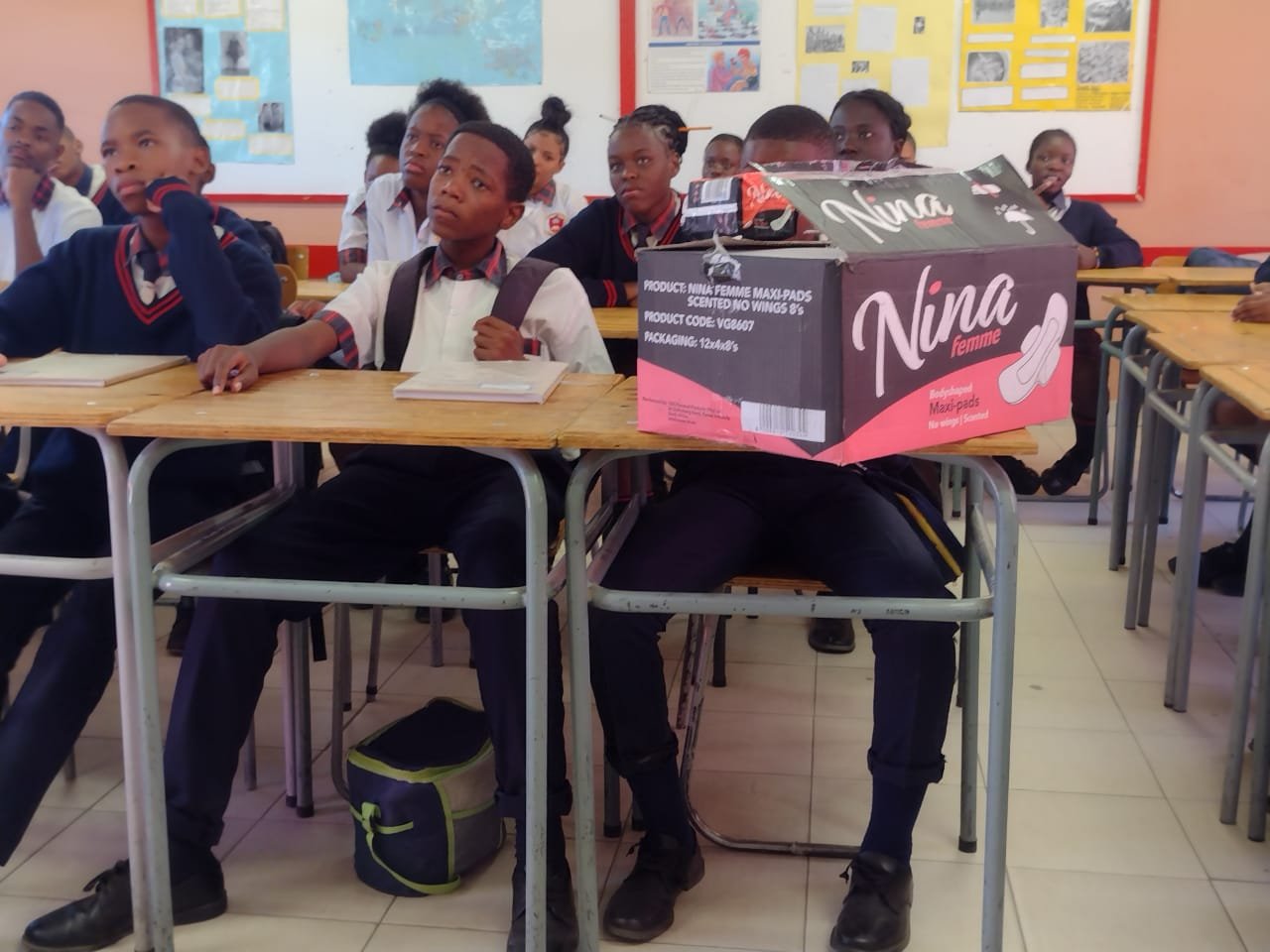
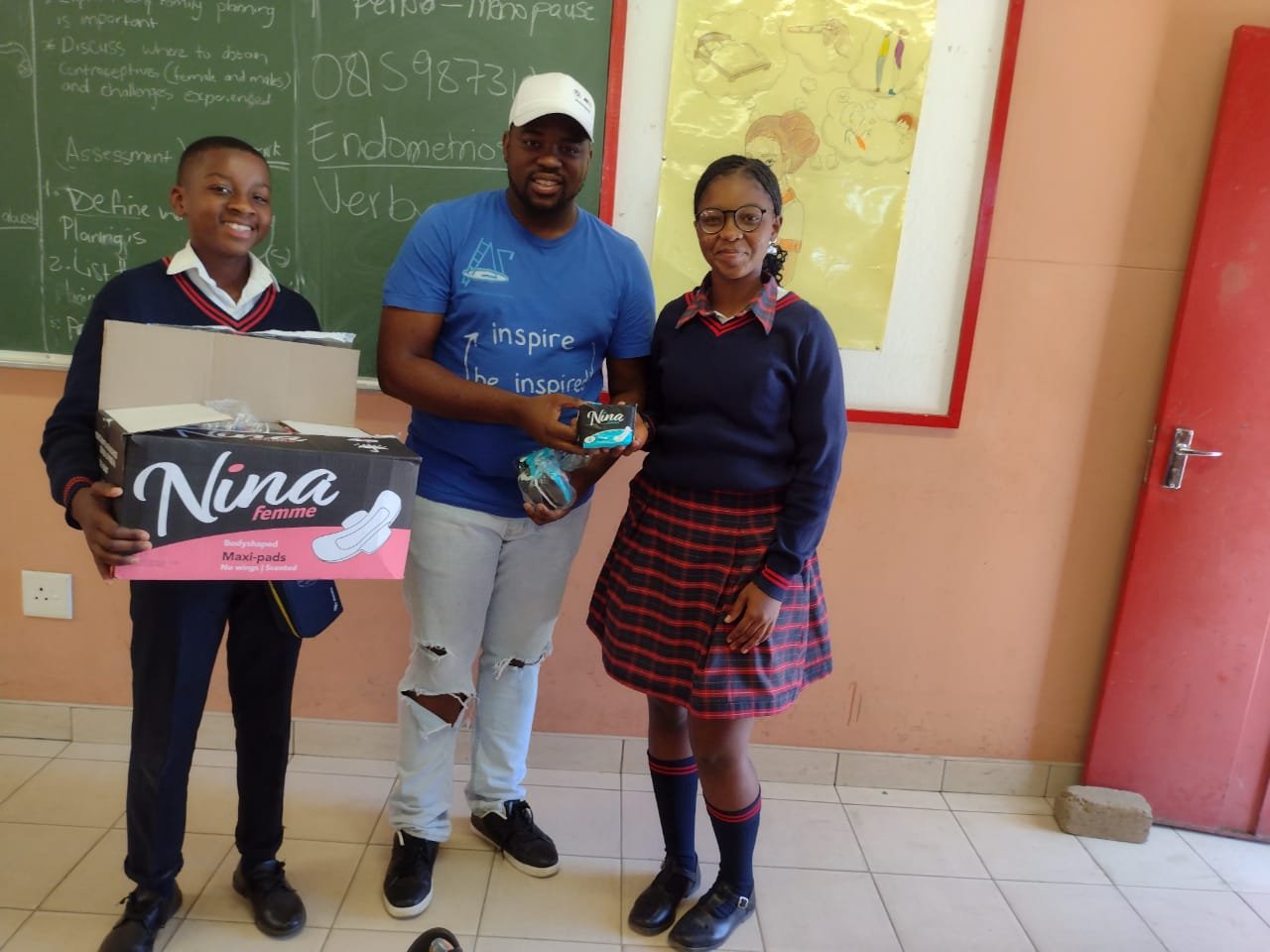
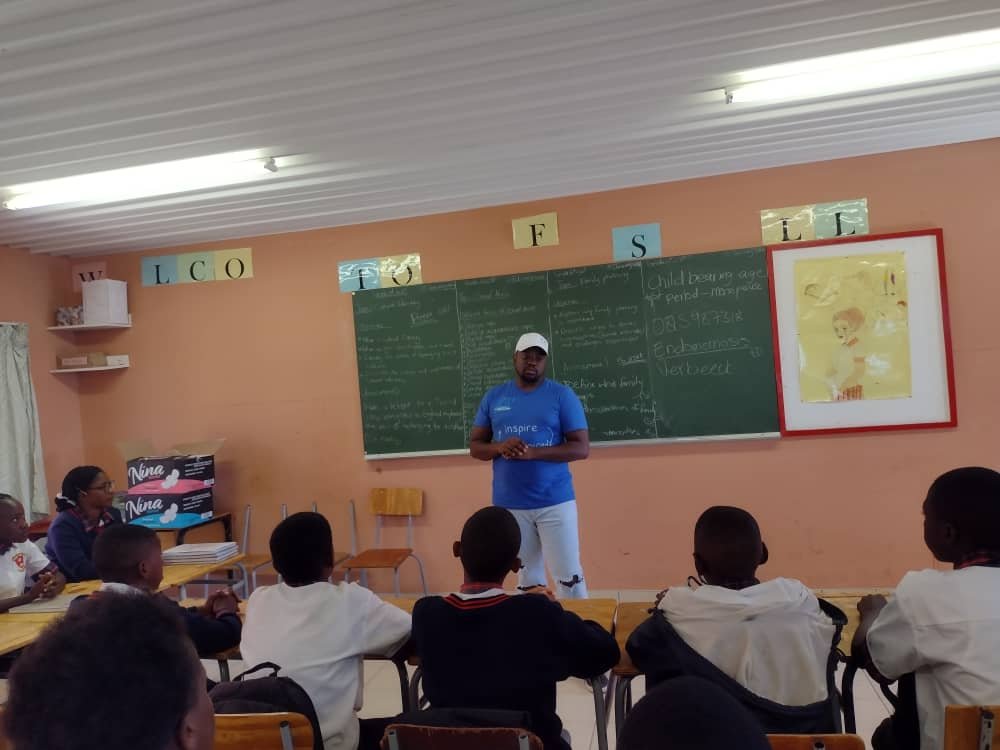
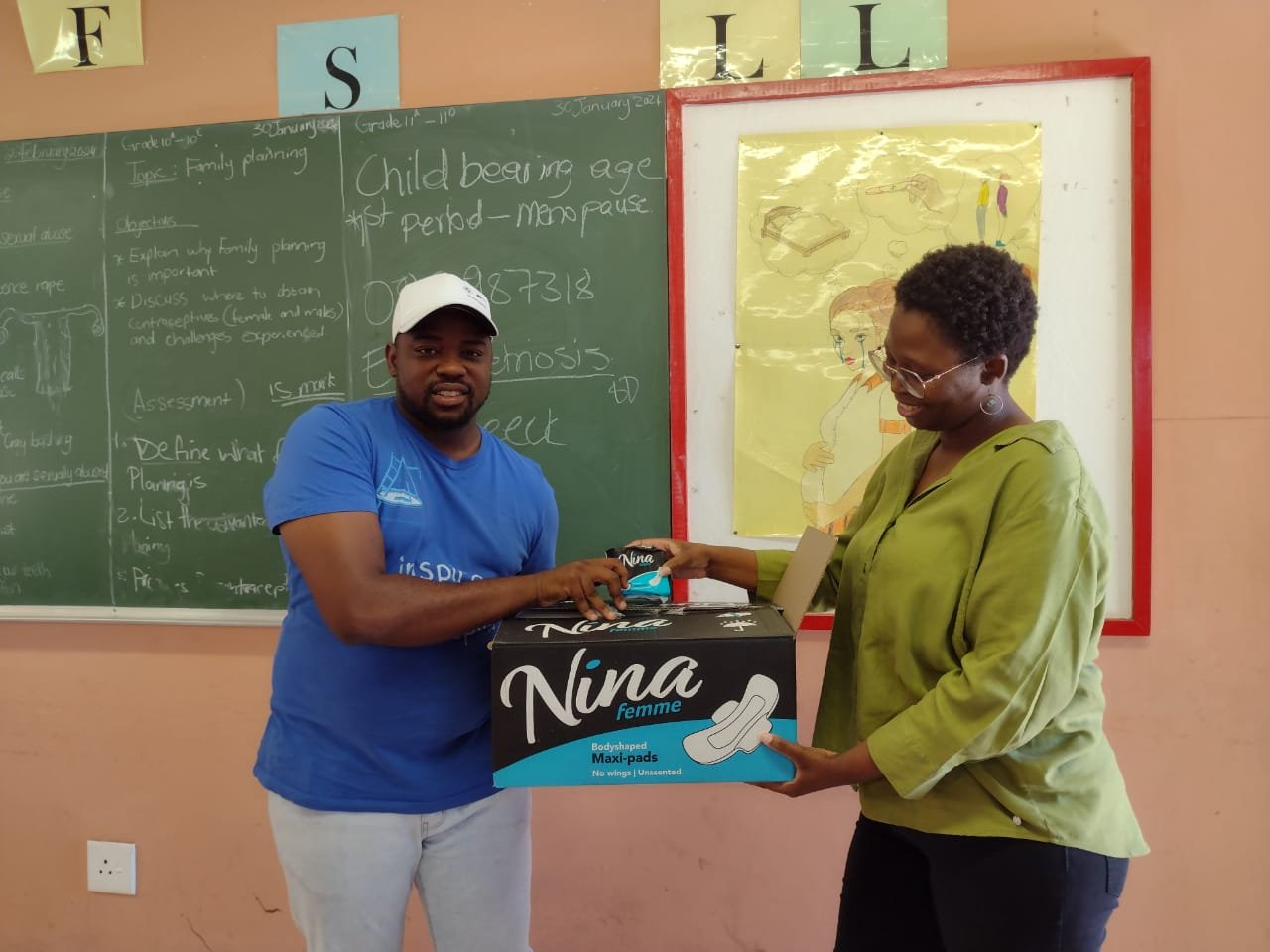

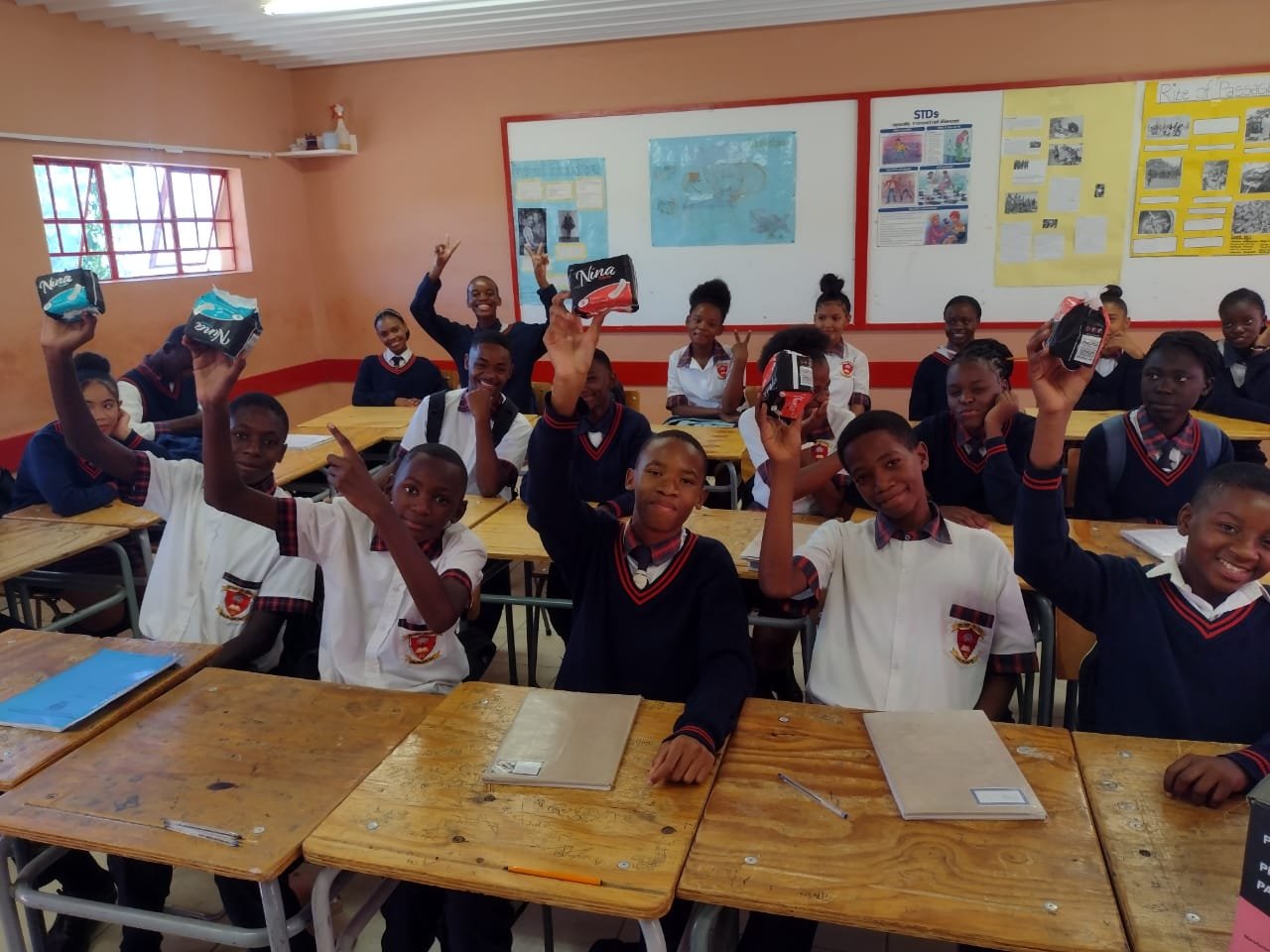
End Period Poverty
According to the United Nations, one out of ten girls in Sub-Saharan Africa miss school during their menstrual period. In Namibia, the lack of sanitary pads and inadequate sanitation facilities is said to be the contributing factor to absenteeism, as the Deputy Minister of Education, Arts, and Culture, Ester Anna Nghipondoka. At The African Connection Namibia, we are committed to ending period poverty by helping empower the girl child to take charge of her menstrual health. In Namibia, the girl child continues to face period poverty. Our recent donation of sanitary pads to the local government & organizations is a testament to helping advance this great cause of ensuring that the girl child has access to sanitary pads, becomes more confident, and increases her chances of staying in school.
AC Girls Health Long-term
We aim to create a comprehensive system to address Namibia's period of poverty. This would include creating sustainable solutions such as providing sanitary pads, developing educational resources on menstruation, and providing access to menstrual health services. We also want to work with local governments and organizations to ensure these resources are available to all women and girls in Namibia. We also want to continue raising awareness about period poverty and advocate for policy change.
Rebecca Immanuel - Development Director
“Our aim is to create a future where every individual has access to menstrual products, education, and healthcare necessary to manage their periods safely and with dignity.”
FAQs
-
Innovation is essential in eliminating period poverty by creating new and more accessible menstrual products, improving access to education, and developing new technologies to address menstrual health concerns.
-Technology enabled us to give access to menstrual education.
-Sustainable and eco-friendly solutions - We work to provide reusable menstrual products to girls in need.
-
The AC works with local organizations to develop a system for providing sanitary materials and support to needy girls.
-
-UNESCO says 1 in 10 girls in Africa miss school because they don't have access to menstrual products or because there aren't adequate toilets to use at school.
-According to the Journal of Women's Health the social and health implications of period poverty is that twothirds of pad users received their pads from sexual partners — with around 10% of 15-year-old girls surveyed reporting engaging in sex for money to buy pads, a much higher rate than among older women.
-According to UNFPA, girls miss up to 5 days of school per month due to menstruation.
-
-Poverty is one of the main factors contributing to period poverty. Poor people may struggle to afford menstrual products, resulting in unhygienic and unsafe period management practices.
-Lack of access to menstrual products: In many parts of the world, menstrual products are not widely available or are prohibitively expensive. This lack of access can lead to period poverty, as people may be forced to use unsafe or unhygienic materials to manage their periods.
-Gender inequality can contribute to period poverty. In some cultures, women and girls are not given the same opportunities as men and boys, which can result in a lack of access to menstrual products, education, and healthcare.
-
Eliminating period poverty requires a sustained effort that involves addressing the multiple factors that contribute to it. -Increase access to menstrual products.
-Provide comprehensive menstrual education. -Address stigma and taboos around menstruation.
-Provide access to healthcare.
-Advocate for policy change.
-Support grassroots initiatives.
-
-Providing comprehensive menstrual education can help people understand their bodies, the menstrual cycle, and how to manage their periods confidently and safely.
-Addressing the cultural stigma and taboos around menstruation is important in eliminating period poverty.
-Support grassroots initiatives: Many initiatives work to reduce period poverty by providing menstrual products, education, and healthcare to needy people.
Our Impact
-

+200 Pads donated to Atlantic High School
-

+200 Pads donated to the Ovahimba Community
-

+1000 Pad donated to Jan Jonker Afrikaner High school
-

Donate to Girls Health
